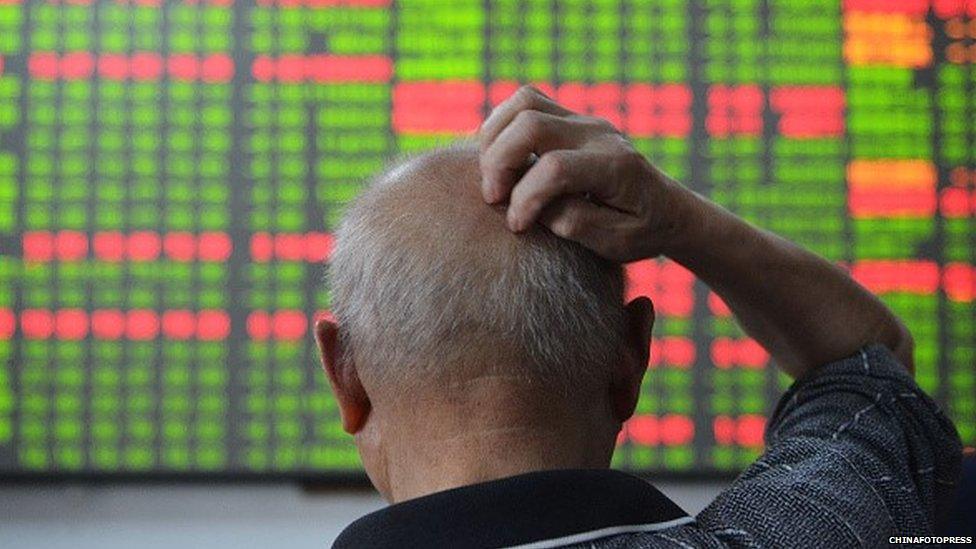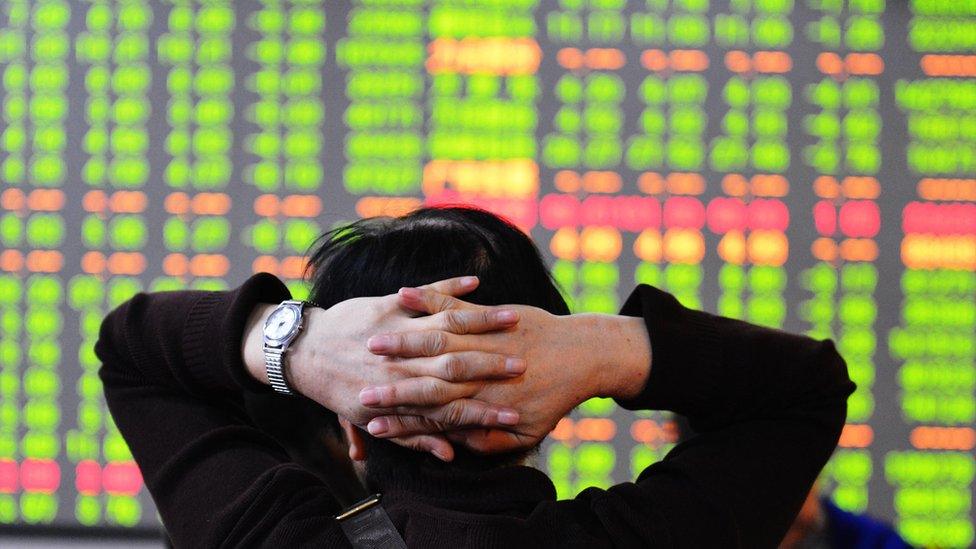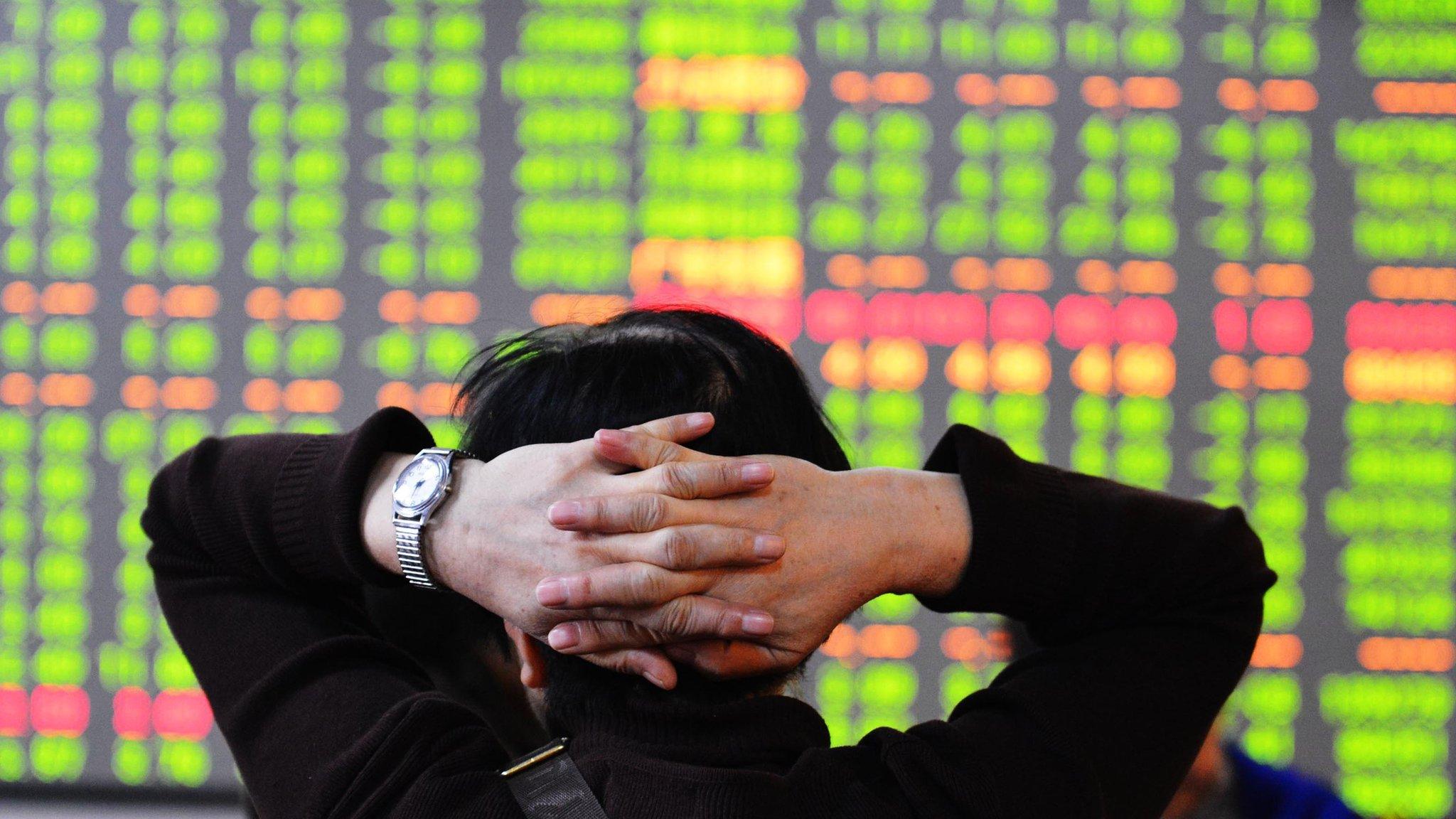China to probe stock market manipulation
- Published

Some analysts say the slump was triggered by concerns over inflated valuations and is a correction in the market
China's securities regulator will investigate suspected manipulation of the stock market, state news agency Xinhua reports.
The regulator said late on Thursday that it would be looking into whether parties were mis-selling financial products.
The benchmark Shanghai Composite index has slumped about 30% since mid-June, wiping out most of this year's gains.
Any criminal cases will be transferred to the police, the regulator said.
The China Securities Regulatory Commission (CSRC) said it would base its investigation on reports of abnormal market movements from the stock market and futures exchanges.
The Shanghai exchange, one of the best performing in the world, more than doubled its value in the last 12 months. But the recent losses have wiped out trillions of dollars of share value, said the BBC's Martin Patience in Beijing.

The Shanghai Composite was the best performing major benchmark index in the world in 2014
Short-selling concern
Some reports have accused overseas investors of driving prices down by short-selling stocks on Chinese bourses, meaning they were betting on stocks falling.
The China Financial Futures Exchange (CFFEX) has suspended 19 accounts from short-selling for a month, reports Reuters news agency, citing unnamed sources.
However, analysts say the slump was triggered by concerns over inflated valuations and is a correction in the market, which had risen by 150% in the last year.
An editorial in the state-run Global Times has denied that overseas investors, who have limited access to Chinese markets, were manipulating stocks.
"Foreign capital has only a small part of the Chinese stock market," it said. "Large-scale short selling by foreign investors in the Chinese stock market has not appeared and is an unlikely scenario."
The sharp drop in the Shanghai Composite has already triggered policy moves over the past week, including a cut in the cost of borrowing and easing of margin lending rules, making it easier for brokerages to lend money.
However, these moves have failed to stop the sell-off, which is now starting to spill into commodity markets such as iron ore and steel.
- Published1 July 2015
